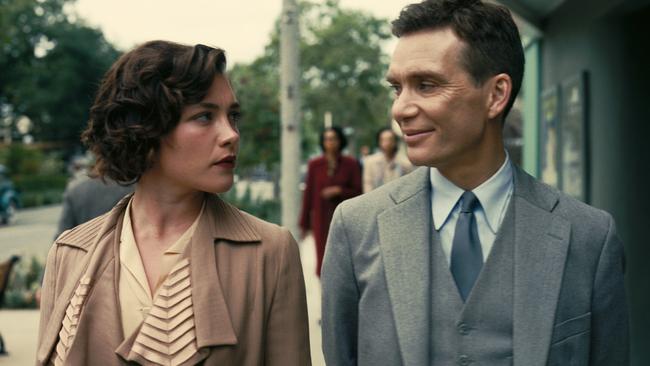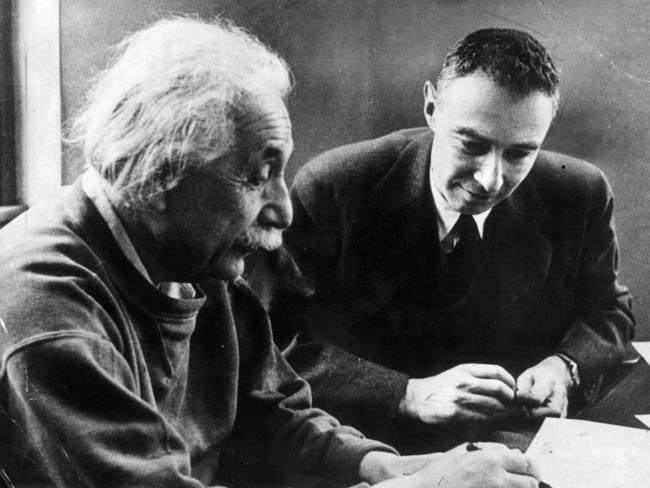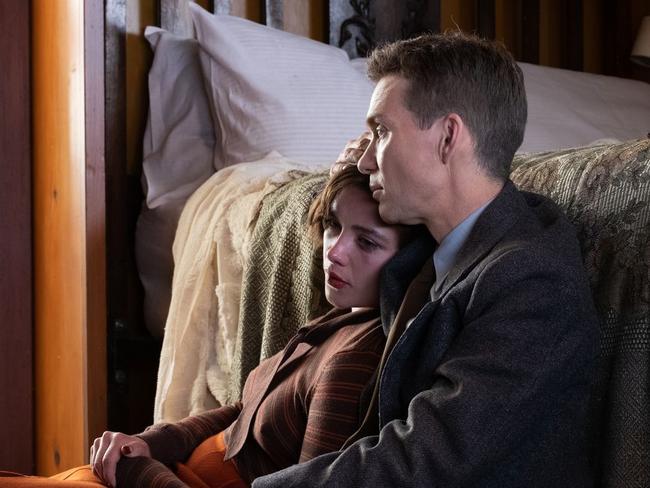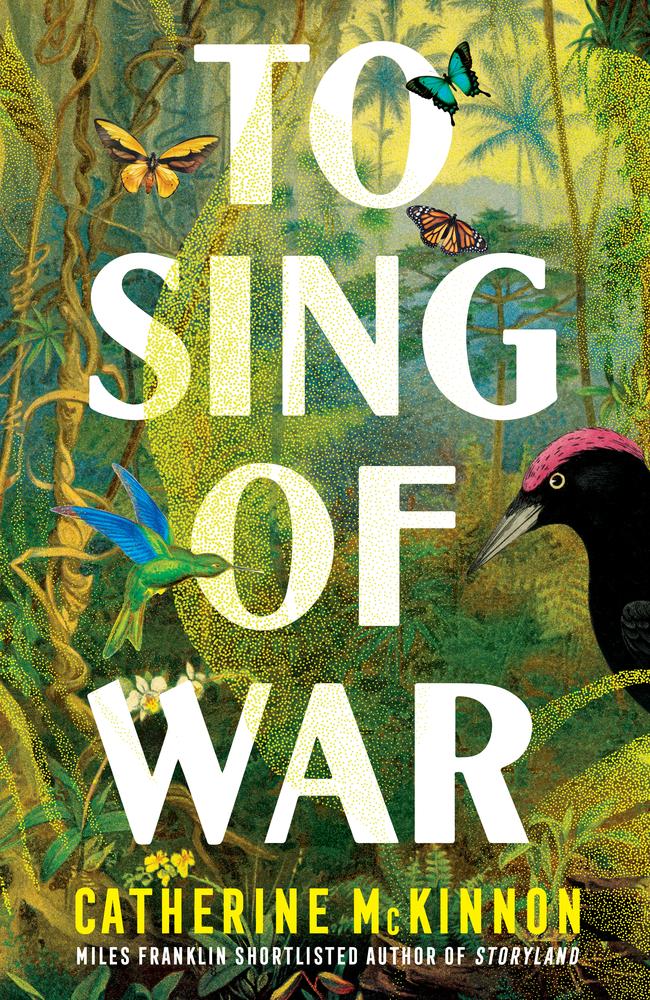Oppenheimer, bullies and a desire to fit in: Catherine McKinnon on her new wartime novel
Everyone knows the name Oppenheimer, thanks to the blockbuster biopic. But an ugly bullying incident in the scientist’s past gives new insight into his character and motivation.
Books
Don't miss out on the headlines from Books. Followed categories will be added to My News.
To better understand the legendary Robert Oppenheimer for her new novel, CATHERINE McKINNON went back to his early life.
Hilary Mantel once said: ‘if we want to meet the dead looking alive, we turn to art.’
My new novel To Sing of War tries to do just that – to meet the dead looking alive! It’s set in World War Two and braids stories from three countries: the United States, New Guinea (now Papua New Guinea) and Japan. The story traces the connections between us and the violence that rips us apart: violence in war and also in intimate relationships.
In To Sing of War there are several characters whose lives are developed from the dead, but in writing the novel I learnt that bringing them back is not always easy.

How much could I make up?
Every historical fiction writer answers that question differently. In To Sing of War my aim is to stay true (as much as possible) to the documented events of historical figures. That’s my contract with readers. What I make up, are the bits we don’t know: those parts of a person’s life not recorded, especially what goes on in their minds. That said, what I make up must always be plausible and consistent with the research. To help with plausibility, and with developing a sensitive character portrayal, I often look for ‘significant’ life events that might have shaped the personality of the real person and then reimagine them in the novel.
There are six protagonists in To Sing of War and one is drawn from the life of Robert Oppenheimer, the theoretical physicist often called “the father of the atomic bomb”. (His name went viral last year when Christopher Nolan’s film, Oppenheimer, hit our screens.)

There was an incident from Oppenheimer’s early life that struck me as ‘significant’. It occurred at a boys’ holiday camp. Robert was not fitting in, yet he wrote to his parents saying he was enjoying himself and was learning interesting things about sex. Likely it was meant as a joke but his parents were alarmed. They drove out to the camp, complained to the camp director, then left without seeing Robert. The camp director called the boys together and castigated them for telling dirty stories. The boys then ganged up on Robert. One night, they grabbed hold of him, dragged him to the icehouse, stripped him of his clothes, painted his balls and buttocks green, then locked him in, taking his clothes with them. For the entire night, Robert lay shivering on a dirt floor, next to large blocks of ice. The next morning his attackers opened the door, threw in his garments, and warned him off telling anyone.

I couldn’t get this story out of my mind. Young Robert would have been so humiliated, possibly ashamed, perhaps angry. What could this story tell my readers? Because of Oppenheimer’s precocious personality, his unique intelligence, his younger years were troubled. He was different, an outsider. In later life, however, he often spoke of his deep love for and connection to America. He wanted to belong, but it was a particular kind of belonging. He learnt many languages: Sanskrit so he could read the Bhagavat Gita, Dutch so that he could give one lecture, but he never identified with the Yiddish language of his German Jewish heritage. It was America Oppenheimer wanted to belong to and the icehouse story helped me situate this for readers.

Besides Oppenheimer, the other protagonists in To Sing of War are Oppenheimer’s wife, Kitty; a young female physicist, Mim; an Australian nurse, Lotte, and her first love Virgil, a soldier; and a mother and innkeeper, Hiroko. All are connected by the historical moment they live in and by their desire to belong. Yet, all have independent spirits. My novel has synergies with Nolan’s moviein that both frame world events with the pettiness of political and intimate relationships, and both claim for Oppenheimer, a deep yearning to belong.
In her 2017 Reith lecture, Hilary Mantel says, ‘Are these good times, bad times, interesting times? We rely on history to tell us. History, and science too, help us put our small lives in context.’

What we all crave are stories that takes us to the heart of a moment in time and to the complexity of what it is to be human. Stories that help us understand our frailty and our strength. I think the Oppenheimer film does this and my humble hope is that To Sing of War will do this too.
To Sing of War by NSW-based Catherine McKinnon is out now, published by 4th Estate. Tell us what you think of the novel – or the Nolan movie – at the Sunday Book Club on Facebook.
And check out our new Book of the Month, Rachael Treasure’s Milking Time. Get it for 30% off the RRP with the code TREASURE at Booktopia. T & Cs: Ends 31-May-2024. Only on ISBN 9781460757598. Not with any other offer.
Originally published as Oppenheimer, bullies and a desire to fit in: Catherine McKinnon on her new wartime novel


